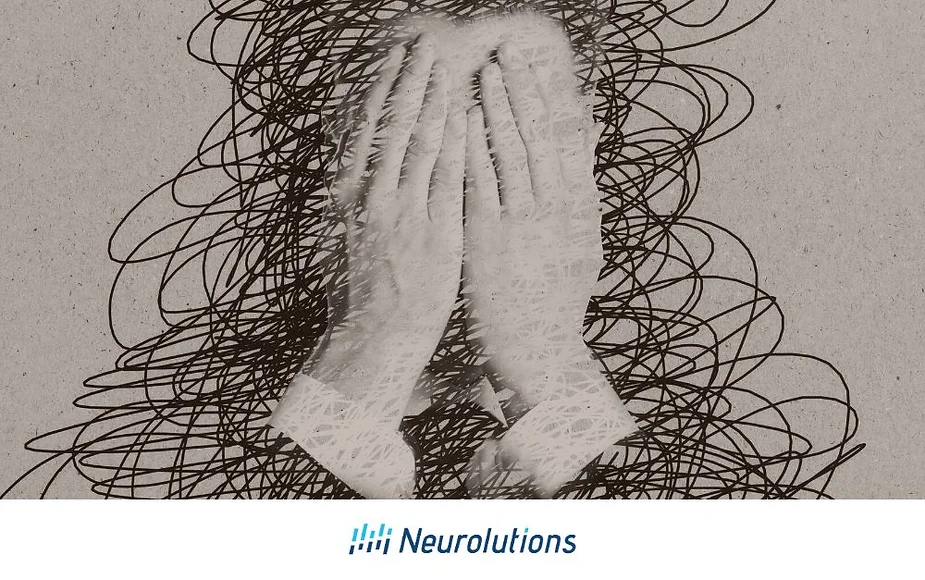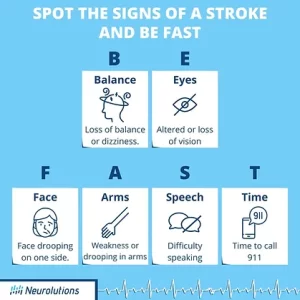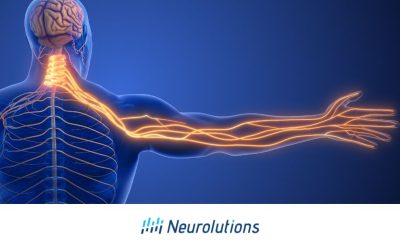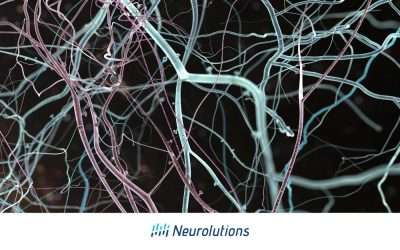What is Stress?
Stress can harm us physically, emotionally, and mentally. Stress is defined as “a state of worry or mental tension caused by a difficult situation,” according to the World Health Organization (WHO) (2). Stress is a natural human response that prompts us to address challenges and threats in our lives.
When someone experiences stress, it makes it hard to relax, in a range of emotions such as anxiety, fear, and irritability. Everyone experiences stress and manages it in different ways. Even though a little bit of stress is healthy and can help us perform daily activities, too much stress can cause physical, emotional, and mental health issues. Stress can sometimes cause physical concerns such as headaches, muscle tension, chest pain, increased heart rate and blood pressure, fatigue, and/or stomach issues (3).
Stress can be caused by any type of life stressor, such as work, trauma, school, a change in one’s life, or a relationship. There are good and bad life stressors in our life. However, too much can cause damage to our well-being. Sometimes the stress comes from inside, rather than outside. You can stress yourself out just by worrying or overthinking different aspects and events in your life.
How Can Stress Cause A Stroke?
While stress itself is not a direct cause of stroke, chronic and long-term stress can contribute to certain risk factors that increase likelihood of having a stroke. Stress can cause the heart to work harder, increase heart rate, increase blood pressure, and increase sugar and fat levels in the blood. An increase in these conditions can increase the risk of clots forming and traveling to the brain, causing a stroke (3). If an individual already has an underlying cardiovascular condition, stress may have an even more detrimental effect on this individual’s body. Having a lot of stress in life may cause an unhealthy lifestyle, such as overeating, eating unhealthy foods, drinking too much alcohol, or smoking. These behaviors can increase your risk of developing a stroke as it could lead to the development of conditions like high blood pressure, obesity, and diabetes.
Stress On The Body – SNS and PNS
The autonomic nervous system has a direct role in the physical response to stress, and is divided into the sympathetic nervous system (SNS), and the parasympathetic nervous system (PNS). When we are in a stressful situation, our body goes into fight, flight, or freeze (aka fright) mode. These modes are an automatic physiological reaction to an event that is perceived as stressful. The perception of threat activates the sympathetic nervous system and triggers an acute stress response that prepares the body to fight, flight, or freeze. During a stressful event, the body shifts its energy resources toward fighting off the stressor, fleeing away from the stressor, or freezing during the stressful event (9).
The SNS signals the adrenal glands to release hormones called adrenaline (epinephrine) and cortisol. These hormones cause the heart to beat faster, the respiration rate to rise, blood vessels in the arms and legs to dilate, the digestive process to change, and glucose levels (sugar energy in the bloodstream to increase to deal with the stressful event. Chronic stress, which is experiencing stressors over a prolonged period of time, can result in a long-term drain on the body. You may feel more fatigue, irritability, annoyance, and an increase in anxiety. As the ANS continues to trigger physical reactions, it causes wear-and-tear on the body. This is more related to the continuous activation of the nervous system and the effects it has on the body as opposed to the actual chronic stress.
How Does Stress Affect the Heart?
Stress can have different effects on the heart and cardiovascular system. Acute stress, stress that is momentary or short-term, causes an increase in heart rate and stronger contractions of the heart muscle. Chronic stress has the same effect, but constant stress experienced over time can contribute to long-term problems relating to the heart and blood vessels. The consistent and ongoing increase of heart rate, elevated levels of stress hormones, and increase of blood pressure can cause negative effects on our body. These long-term effects of stressors can increase the likelihood of experiencing a stroke.
Types of Stress
There are many different kinds of stress that individuals experience. commonly recognized types of stress are acute, episodic acute, and chronic.
Acute stress results from your body’s reaction to a new or challenging situation. Acute stress is short-term, and our body and mind return back to their normal state relatively soon. There are different situations that can cause acute stress, such as approaching an important deadline or braking hard while driving to avoid a car. We can also experience acute stress during an event that we enjoy, such as a roller coaster or an outstanding personal achievement. We can still experience the increase of heart rate, sweating, blood pressure, and anxiety, but these symptoms are relieved after a few minutes, hours, or days.
Episodic acute stress is when acute stressors happen on a frequent basis. For example, the repeatedly tight work deadlines, consistent workload, and always being on the go. In addition, some professionals experience frequent high-stress situations, such as healthcare workers, lawyers, business owners, and much more. With this type of stress, we don’t get time to return back to a relaxed and calm state. These effects of high-frequency acute stressors may accumulate. This type of episodic stress often leaves us feeling like we are always moving from one stressful event to another.
Chronic stress is the result of stressors that continue for a long period of time. These stressors can include financial burden, socioeconomic status, existing in an abusive relationship or constant fighting with a life partner, and life-long trauma. This type of stress feels never-ending and the symptoms are constant and taught to learn to live with. When someone is living with this type of stress, they often have difficulty seeing any way to improve or change the situation that is the cause of the stress. Sometimes it may lead to denial and cause life-threatening concerns.
Link Between Stress and Stroke
The escalation of stressors in our life can cause physical, emotional, and mental problems. Increase of heart rate, blood pressure, and fatty and sugar levels in our blood can cause more blood clots which may result in an ischemic stroke. In the article, “The Emotional Stress and Risk of Ischemic Stroke,” Dariusz Kotlega states that “stress can increase the cerebrovascular disease (stroke) risk by modulating sympathomimetic activity (SNS messagers), affecting the blood pressure, cerebral endothelium (hormones), and coagulation or heart rhythm (5). The more chronic stressors in our life, the risk there is of experiencing a stroke increases.
In addition, in the article “Association of Psychosocial Stress with Risk of Acute Stroke,” Dr. Catriona Reddin states how psychosocial stress is associated with an increased risk of stroke by providing findings using self-reported psychosocial stress among 26,812 participants. In this case-control study, Reddin was able to determine that psychosocial stress is a common risk for acute stroke (7). This association is consistent with ischemic and hemorrhagic strokes. Moreover, Reddin was able to determine that the higher your locus of control is, the less likely you are at risk for stroke associated with psychosocial stress. Locus of control refers to the degree to which an individual feels a sense of control in their life.
Stress-related Behaviors
When we are stressed, we can exhibit unhealthy behavior. There can be times that stress takes over our life and we behave differently. Stress can cause us to overeat or undereat, have angry outbursts, engage in drug or alcohol misuse, tobacco use, withdraw socially, and exercise less. We tend to think less of our self-care and focus more on the stressors. Living an unhealthy lifestyle and neglecting self care can contribute to an increased risk of stork.
Signs and Symptoms of a Stroke (10)
- Sudden numbness or weakness in the face, arm, or leg, especially on one side of the body
- Sudden confusion, trouble speaking, or difficulty understanding speech
- Sudden trouble seeing in one or both eyes
- Sudden trouble walking, dizziness, loss of balance, or lack of coordination
- Sudden severe headache with no known cause
Can Stress-Related Symptoms Overlap With Having A Stroke? Since everyone experiences stress differently, there can be times that symptoms of stress can overlap with having a stroke. It is important to know the specific signs and symptoms of a stroke, and to be cautious if you think someone is having a stroke. When we are stressed, we might experience stroke-like symptoms, such as difficulty thinking, dizziness, trouble speaking, and severe headaches. It is important to seek medical attention for stroke symptoms. Act F.A.S.T to identify a stroke! (11) Managing Stress Stress management techniques are very important to living a healthy lifestyle. Some stress management techniques include: Meditation or yoga Engage in physical activity and movement Calming apps or music to enhance your mood Focus on one task at a time and recognize when you finish tasks (multitasking can often cause an increase in stress levels) Provide a work life balance Make time for friends and family Seek social support Consider talking with a therapist, counselor, or life coach Go outside as much as possible Stop working after a certain time Get up and move several times during the work day Set boundaries on work Create an attainable exercise program you can do before or after work Free Mobile Apps for Stress Management Calm: Helps with relaxing, meditation, and improves sleep Headspace: Mindful meditation and helps with general anxiety and manage stress Insight Timer- Meditation & Sleep: Helps you create a routine for calming strategies throughout the day Yoga Time: For Beginners & All: Provides yoga poses for beginners and provides calming strategies to reduce stress Conclusion Stress will always be around us. It is important to limit our stress as much as possible in order to live a long healthy life. You are in control of your life. You can decide how much stress you can put into your life. It is important to realize the signs and symptoms of your stress and practice healthy strategies to reduce your stress, because too much stress can cause unhealthy conditions, such as a stroke. It is not healthy to be on the go 24/7. Talk to someone, a friend, a family member, or your doctor if you feel like you have too much stress in your life. It is okay to ask for help to manage your stress. It is important to have a work-life balance in order to have a healthy successful quality of life. Chronic stress is real and the negative effects on our body can cause a negative outlook on life. Remember: self-care is the best care! References: https://www.heartandstroke.ca/healthy-living/reduce-stress/stress-basics#:~:text=There%20are%20undeniable%20links%20between,a%20heart%20attack%20or%20stroke. https://www.emro.who.int/health-topics/stroke-cerebrovascular-accident/index.html https://health.clevelandclinic.org/stressed-work-may-higher-risk-stroke/ https://www.unitypoint.org/news-and-articles/does-stress-cause-stroke—unitypoint-health https://pubmed.ncbi.nlm.nih.gov/27375141/ https://strokerecoveryfoundation.org/?keyword_session_id=vt~adwords%7Ckt~stroke%7Cmt~b%7Cta~42162420948
Can Stress-Related Symptoms Overlap With Having A Stroke?
Since everyone experiences stress differently, there can be times that symptoms of stress can overlap with having a stroke. It is important to know the specific signs and symptoms of a stroke, and to be cautious if you think someone is having a stroke. When we are stressed, we might experience stroke-like symptoms, such as difficulty thinking, dizziness, trouble speaking, and severe headaches. It is important to seek medical attention for stroke symptoms. Act F.A.S.T to identify a stroke! (11)
Managing Stress
Stress management techniques are very important to living a healthy lifestyle. Some stress management techniques include:
- Meditation or yoga
- Engage in physical activity and movement
- Calming apps or music to enhance your mood
- Focus on one task at a time and recognize when you finish tasks (multitasking can often cause an increase in stress levels)
- Provide a work life balance
- Make time for friends and family
- Seek social support
- Consider talking with a therapist, counselor, or life coach
- Go outside as much as possible
- Stop working after a certain time
- Get up and move several times during the work day
- Set boundaries on work
- Create an attainable exercise program you can do before or after work
Free Mobile Apps for Stress Management
- Calm: Helps with relaxing, meditation, and improves sleep
- Headspace: Mindful meditation and helps with general anxiety and manage stress
- Insight Timer– Meditation & Sleep: Helps you create a routine for calming strategies throughout the day
- Yoga Time: For Beginners & All: Provides yoga poses for beginners and provides calming strategies to reduce stress
Conclusion
Stress will always be around us. It is important to limit our stress as much as possible in order to live a long healthy life. You are in control of your life. You can decide how much stress you can put into your life. It is important to realize the signs and symptoms of your stress and practice healthy strategies to reduce your stress, because too much stress can cause unhealthy conditions, such as a stroke. It is not healthy to be on the go 24/7.
Talk to someone, a friend, a family member, or your doctor if you feel like you have too much stress in your life. It is okay to ask for help to manage your stress. It is important to have a work-life balance in order to have a healthy successful quality of life. Chronic stress is real and the negative effects on our body can cause a negative outlook on life. Remember: self-care is the best care!
References:
- https://www.heartandstroke.ca/healthy-living/reduce-stress/stress-basics#:~:text=There%20are%20undeniable%20links%20between,a%20heart%20attack%20or%20stroke.
- https://www.emro.who.int/health-topics/stroke-cerebrovascular-accident/index.html
- https://health.clevelandclinic.org/stressed-work-may-higher-risk-stroke/
- https://www.unitypoint.org/news-and-articles/does-stress-cause-stroke—unitypoint-health
- https://pubmed.ncbi.nlm.nih.gov/27375141/
- https://strokerecoveryfoundation.org/?keyword_session_id=vt~adwords%7Ckt~stroke%7Cmt~b%7Cta~421624209480&_vsrefdom=wordstream&gad=1&gclid=Cj0KCQjw9deiBhC1ARIsAHLjR2Au4RtdKpQ0iMnVNJT-F0rVNajfqTstYVyNSJXX-syEcsk8quEKWgwaAljEEALw_wcB
- https://jamanetwork.com/journals/jamanetworkopen/fullarticle/2799352
- https://www.ahajournals.org/doi/10.1161/01.STR.0000062345.80774.40
- https://www.apa.org/topics/stress/body#:~:text=When%20the%20body%20is%20stressed%2C%20the%20SNS%20contributes%20to%20what,adrenalin%20(epinephrine)%20and%20cortisol.
- https://www.cdc.gov/stroke/signs_symptoms.htm#:~:text=Sudden%20numbness%20or%20weakness%20in,balance%2C%20or%20lack%20of%20coordination.
- https://www.mayoclinic.org/healthy-lifestyle/stress-management/in-depth/stress-symptoms/art-20050987
- https://youtu.be/mkpbbWZvYmw






